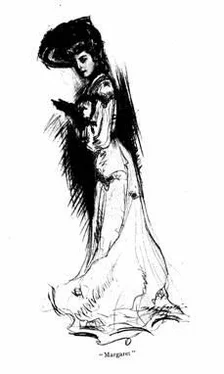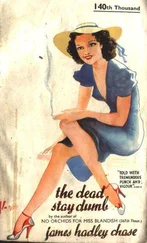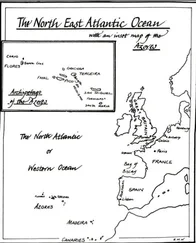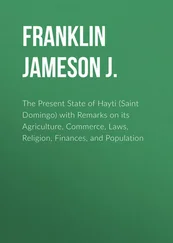James Cabell - The Eagle's Shadow
Здесь есть возможность читать онлайн «James Cabell - The Eagle's Shadow» весь текст электронной книги совершенно бесплатно (целиком полную версию без сокращений). В некоторых случаях можно слушать аудио, скачать через торрент в формате fb2 и присутствует краткое содержание. Жанр: Современная проза, на английском языке. Описание произведения, (предисловие) а так же отзывы посетителей доступны на портале библиотеки ЛибКат.
- Название:The Eagle's Shadow
- Автор:
- Жанр:
- Год:неизвестен
- ISBN:нет данных
- Рейтинг книги:4 / 5. Голосов: 1
-
Избранное:Добавить в избранное
- Отзывы:
-
Ваша оценка:
- 80
- 1
- 2
- 3
- 4
- 5
The Eagle's Shadow: краткое содержание, описание и аннотация
Предлагаем к чтению аннотацию, описание, краткое содержание или предисловие (зависит от того, что написал сам автор книги «The Eagle's Shadow»). Если вы не нашли необходимую информацию о книге — напишите в комментариях, мы постараемся отыскать её.
The Eagle's Shadow — читать онлайн бесплатно полную книгу (весь текст) целиком
Ниже представлен текст книги, разбитый по страницам. Система сохранения места последней прочитанной страницы, позволяет с удобством читать онлайн бесплатно книгу «The Eagle's Shadow», без необходимости каждый раз заново искать на чём Вы остановились. Поставьте закладку, и сможете в любой момент перейти на страницу, на которой закончили чтение.
Интервал:
Закладка:
Colonel Hugonin paused and stared at the open window for a little. He seemed to be interested in something a great way off.
"We used to read Ouida's books together," he said, somewhat wistfully.
"Lord, Lord, how she revelled in Chandos and Bertie Cecil and those dashing Life Guardsmen! And she used to toss that little head of hers and say I was a finer figure of a man than any of 'em—thirty years ago, good Lord! And I was then, but I ain't now. I'm only a broken-down, cantankerous old fool," declared the Colonel, blowing his nose violently, "and that's why I'm quarrelling with the dearest, foolishest daughter man ever had. Ah, my dear, don't mind me—run your menagerie as you like, and I'll stand it."
Margaret adopted her usual tactics; she perched herself on the arm of his chair and began to stroke his cheek very gently. She often wondered as to what dear sort of a woman that tender-eyed, pink-cheeked mother of the old miniature had been—the mother who had died when she was two years old. She loved the idea of her, vague as it was. And, just now, somehow, the notion of two grown people reading Ouida did not strike her as being especially ridiculous.
"Was she very beautiful?" she asked, softly.
"My dear," said her father, "you are the picture of her."
"You dangerous old man!" said she, laughing and rubbing her cheek against his in a manner that must have been highly agreeable. "Dear, do you know that is the nicest little compliment I've had for a long time?"
Thereupon the Colonel chuckled. "Pay me for it, then," said he, "by driving the dog-cart over to meet Billy's train to-day. Eh?"
"I—I can't," said Miss Hugonin, promptly.
"Why?" demanded her father.
"Because——" said Miss Hugonin; and after giving this really excellent reason, reflected for a moment and strengthened it by adding, "Because——"
"See here," her father questioned, "what did you two quarrel about, anyway?"
"I—I really don't remember," said she, reflectively; then continued, with hauteur and some inconsistency, "I am not aware that Mr. Woods and I have ever quarrelled."
"By gad, then," said the Colonel, "you may as well prepare to, for I intend to marry you to Billy some day. Dear, dear, child," he interpolated, with malice aforethought, "have you a fever?—your cheek's like a coal. Billy's a man, I tell you—worth a dozen of your Kennastons and Charterises. I like Billy. And besides, it's only right he should have Selwoode—wasn't he brought up to expect it? It ain't right he should lose it simply because he had a quarrel with Frederick, for, by gad—not to speak unkindly of the dead, my dear—Frederick quarrelled with every one he ever knew, from the woman who nursed him to the doctor who gave him his last pill. He may have gotten his genius for money-making from Heaven, but he certainly got his temper from the devil. I really believe," said the Colonel, reflectively, "it was worse than mine. Yes, not a doubt of it—I'm a lamb in comparison. But he had his way, after all; and even now poor Billy can't get Selwoode without taking you with it," and he caught his daughter's face between his hands and turned it toward his for a moment. "I wonder now," said he, in meditative wise, "if Billy will consider that a drawback?"
It seemed very improbable. Any number of marriageable males would have sworn it was unthinkable.
However, "Of course," Margaret began, in a crisp voice, "if you advise Mr. Woods to marry me as a good speculation—"
But her father caught her up, with a whistle. "Eh?" said he. "Love in a cottage?—is it thus the poet turns his lay? That's damn' nonsense! I tell you, even in a cottage the plumber's bill has to be paid, and the grocer's little account settled every month. Yes, by gad, and even if you elect to live on bread and cheese and kisses, you'll find Camembert a bit more to your taste than Sweitzer."
"But I don't want to marry anybody, you ridiculous old dear," said Margaret.
"Oh, very well," said the old gentleman; "don't. Be an old maid, and lecture before the Mothers' Club, if you like. I don't care. Anyhow, you meet Billy to-day at twelve-forty-five. You will?—that's a good child. Now run along and tell the menagerie I'll be down-stairs as soon as I've finished dressing."
And the Colonel rang for his man and proceeded to finish his toilet.
He seemed a thought absent-minded this morning.
"I say, Wilkins," he questioned, after a little. "Ever read any of Ouida's books?"
"Ho, yes, sir," said Wilkins; "Miss 'Enderson—Mrs. 'Aggage's maid, that his, sir—was reading haloud hout hof 'Hunder Two Flags' honly last hevening, sir."
"H'm—Wilkins—if you can run across one of them in the servants' quarters—you might leave it—by my bed—to-night."
"Yes, sir."
"And—h'm, Wilkins—you can put it under that book of Herbert Spencer's my daughter gave me yesterday. Under it, Wilkins—and, h'm, Wilkins—you needn't mention it to anybody. Ouida ain't cultured, Wilkins, but she's damn' good reading. I suppose that's why she ain't cultured, Wilkins."
III
And now let us go back a little. In a word, let us utilise the next twenty minutes—during which Miss Hugonin drives to the neighbouring railway station, in, if you press me, not the most pleasant state of mind conceivable—by explaining a thought more fully the posture of affairs at Selwoode on the May morning that starts our story.
And to do this I must commence with the nature of the man who founded Selwoode.
It was when the nineteenth century was still a hearty octogenarian that Frederick R. Woods caused Selwoode to be builded. I give you the name by which he was known on "the Street." A mythology has grown about the name since, and strange legends of its owner are still narrated where brokers congregate. But with the lambs he sheared, and the bulls he dragged to earth, and the bears he gored to financial death, we have nothing to do; suffice it, that he performed these operations with almost uniform success and in an unimpeachably respectable manner.
And if, in his time, he added materially to the lists of inmates in various asylums and almshouses, it must be acknowledged that he bore his victims no malice, and that on every Sunday morning he confessed himself to be a miserable sinner, in a voice that was perfectly audible three pews off. At bottom, I think he considered his relations with Heaven on a purely business basis; he kept a species of running account with Providence; and if on occasions he overdrew it somewhat, he saw no incongruity in evening matters with a cheque for the church fund.
So that at his death it was said of him that he had, in his day, sent more men into bankruptcy and more missionaries into Africa than any other man in the country.
In his sixty-fifth year, he caught Alfred Van Orden short in Lard, erected a memorial window to his wife and became a country gentleman.
He never set foot in Wall Street again. He builded Selwoode—a handsome Tudor manor which stands some seven miles from the village of Fairhaven—where he dwelt in state, by turns affable and domineering to the neighbouring farmers, and evincing a grave interest in the condition of their crops. He no longer turned to the financial reports in the papers; and the pedigree of the Woodses hung in the living-hall for all men to see, beginning gloriously with Woden, the Scandinavian god, and attaining a respectable culmination in the names of Frederick R. Woods and of William, his brother.
It is not to be supposed that he omitted to supply himself with a coat-of-arms. Frederick R. Woods evinced an almost childlike pride in his heraldic blazonings.
"The Woods arms," he would inform you, with a relishing gusto, "are vert, an eagle displayed, barry argent and gules. And the crest is out of a ducal coronet, or, a demi-eagle proper. We have no motto, sir—none of your ancient coats have mottoes."
Читать дальшеИнтервал:
Закладка:
Похожие книги на «The Eagle's Shadow»
Представляем Вашему вниманию похожие книги на «The Eagle's Shadow» списком для выбора. Мы отобрали схожую по названию и смыслу литературу в надежде предоставить читателям больше вариантов отыскать новые, интересные, ещё непрочитанные произведения.
Обсуждение, отзывы о книге «The Eagle's Shadow» и просто собственные мнения читателей. Оставьте ваши комментарии, напишите, что Вы думаете о произведении, его смысле или главных героях. Укажите что конкретно понравилось, а что нет, и почему Вы так считаете.







